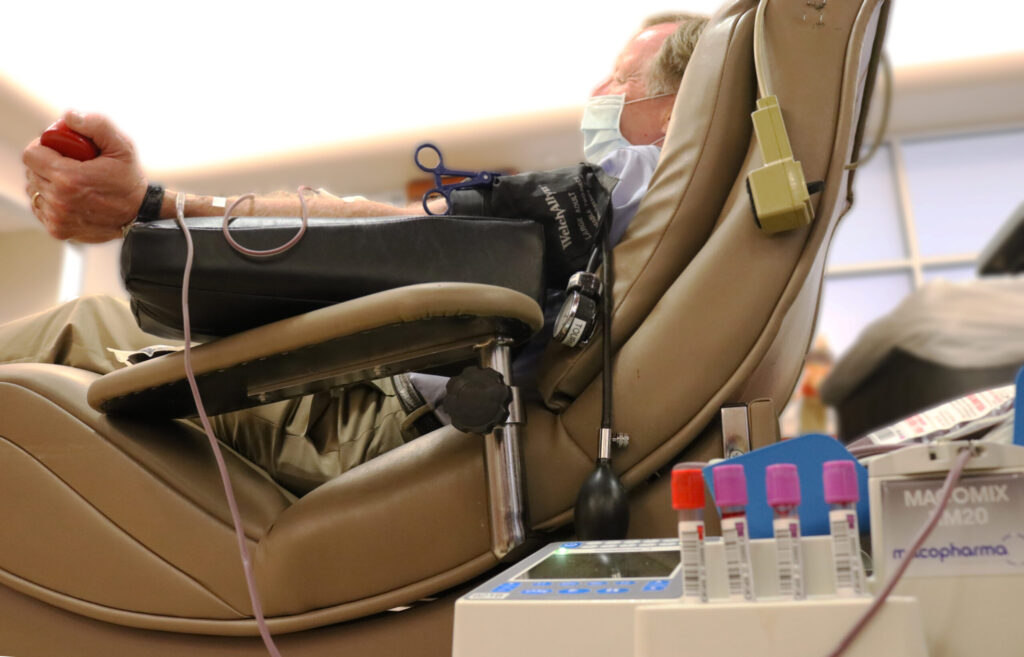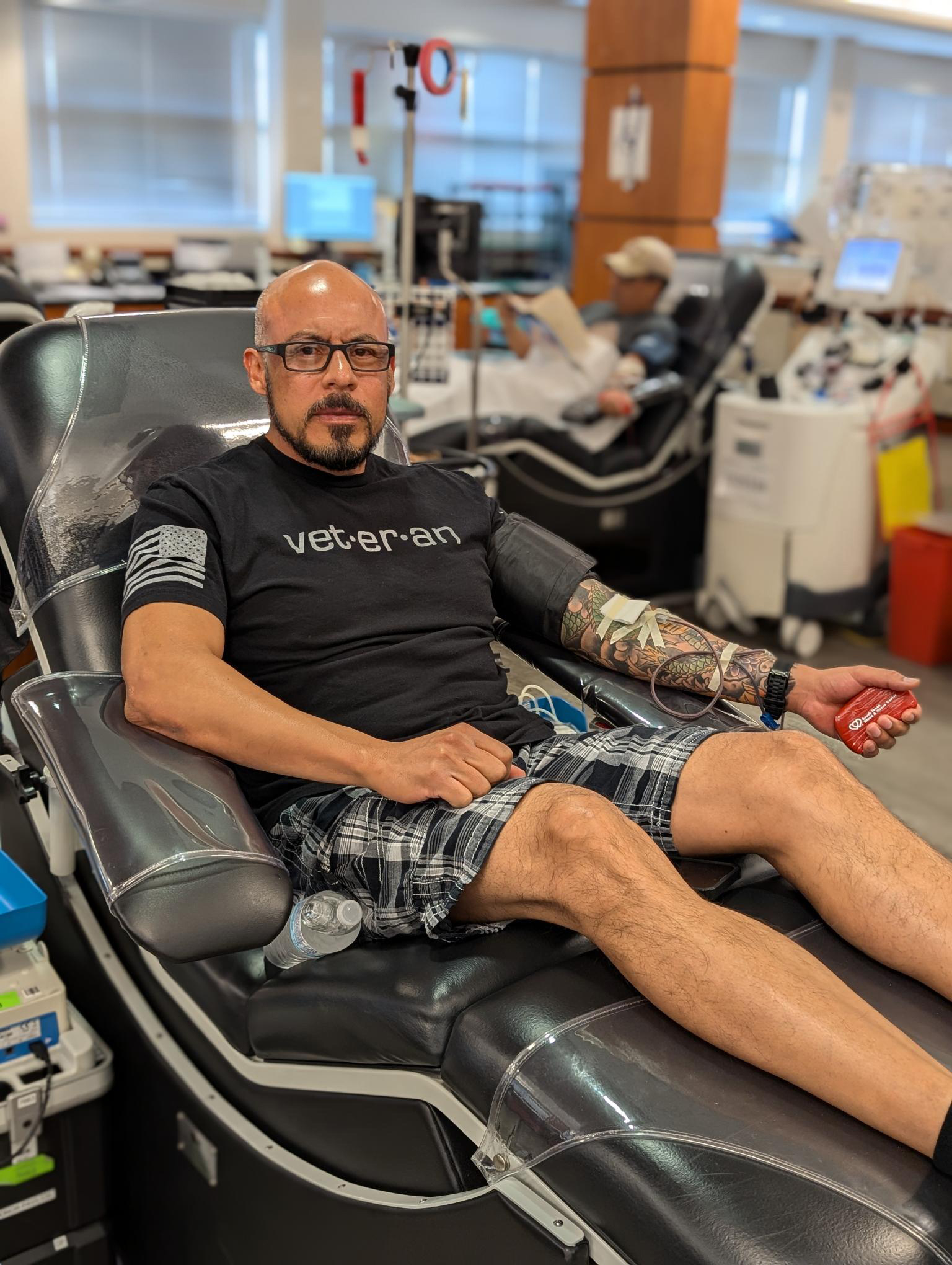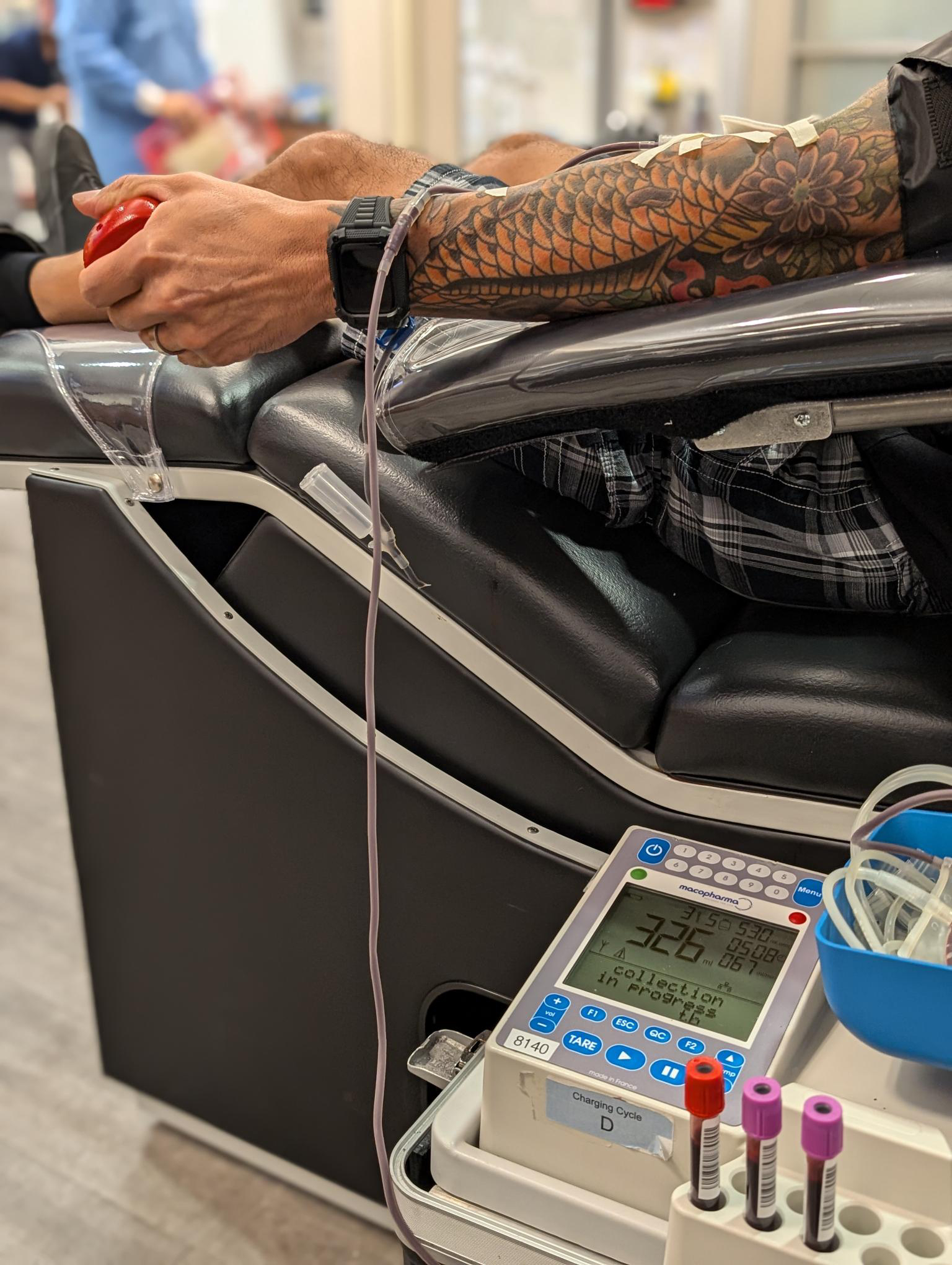Like other blood centers, we follow eligibility criteria from the Food and Drug Administration (FDA). Your blood donor eligibility is determined by your medications, travel, health conditions, and lifestyle.

About 62% of the U.S population is eligible to donate blood, and you may be one of them.
Basic eligibility requirements for donating blood or platelets:
Not sure if you’re eligible? Contact us or call our Donor Eligibility team by calling 210-731-5533.


Following extensive study, the FDA updated its blood donor guidelines for gay and bisexual men. The new guidelines base eligibility on individual risk factors for HIV, and allow more people to donate blood.
The FDA updated its guidance on active-duty, civilian military members and their families who were in Europe, including the UK, Ireland and France.


If you received your tattoo at a licensed facility you can donate blood as soon as your tattoo is fully healed.
Your hemoglobin must be at least 12.5 for females and 13.0 for males.
Yes! You can donate blood as long as your diabetes or high blood pressure is under control and you’re in good health.
Please review our list of medications that may defer you from donating.
According to FDA regulations, you would have to live in the US for 5 consecutive years without visiting any country that would rule you out for donation – for example, Mexico.
To keep you and your baby safe and healthy, you cannot donate blood if you are pregnant. However, you can give blood 6 weeks postpartum as long as you’re in good health.
Yes, but you must wait at least 6 weeks from the birth of your child before donating.
Anemia is the top reason why someone cannot donate blood. Donors may not be able to donate if their iron levels are low during their screening.
To avoid this, we recommend eating iron-rich meals and taking iron supplements starting several days before your donation.
This depends on what kind of cancer you may have had.
You can donate immediately if removed, healed and no further treatment is required: basal cell carcinoma of the skin, cervical Cancer (in situ only),melanoma (in situ only) , or squamous cell carcinoma of the skin.
You can donate if you have been cancer-free for at least 1 year: acanthoma, bladder, breast, cervical (NOT in situ), colon, colorectal, dermatofibrosarcoma protuberans skin cancer, endometrial, kidney, liver, lung, melanoma (not In situ), pancreatic, prostate, rectal, ,squamous (other than skin), thyroid, ovarian, or uterine.
You cannot donate if you ever had: amyloidosis, -cutaneous lymphoma, essential thrombocythemia, eosinophilic granuloma, histiocytosis, Hodgkin’s disease, Kaposi’s sarcoma, leukemia, lymphoma, multiple myeloma, or mycosis fungoides.
You can also call our Donor Eligibility department if you still have questions at 210-731-5533 or email us here.
In 2019, the FDA updated its guidance on active-duty and civilian military members and their families who were in Europe. You are now eligible to give blood.
Previously, if you were stationed for more than six months in Germany, Belgium, the Netherlands from 1980-90, or Greece, Turkey, Spain, Portugal or Italy from 1980-96, you could not donate blood.
If you lived in the United Kingdom, Ireland and France between 1980-2001, you are now eligible to give blood.
If you received a blood transfusion in the United Kingdom, France and Ireland from 1980-present are also eligible to give blood. Learn more.
Each country has an associated malaria risk as determined by the CDC. If you lived in a malaria-risk country for 5 or more continuous years, you will be deferred from blood donation for 3 years after you left that country.
If you travel to a malaria-risk area during that time, the 3-year deferral will restart from the date you return from your most recent travel.
You must wait at least 3 months from your date of return before donating if you visited a high malaria-risk country and stayed longer than 24 hours.
Following extensive studies, the U.S. Food and Drug Administration has changed its guidelines for blood donor eligibility related to gay and bisexual men. The new guidelines will allow more people to give blood. The FDA is basing eligibility to give blood on individual risk factors for HIV instead of sexual orientation. Eligibility will be determined via the pre-donation questionnaire that every donor must complete.
The FDA’s assessment of the data indicated that questions based on behavior rather than sexual orientation would serve to further safeguard the blood supply when used in conjunction with extensive and sensitive testing already in place. Details are included in the FDA’s final guidance for the industry.
Donors taking oral medications to prevent HIV transmission like PrEP will be deferred for three-months. Those taking injectable PrEP will be deferred for two years from the date of the most recent dose. This is due to the effectiveness of these medications in suppressing the presence of HIV in the blood, especially during the “window period” of infection—the time between infection and its ability to be recognized by testing.
This is just one of the many medications that can result in an individual being unable to donate blood while taking the medication and for some time after.
If you have had a child, you must be tested for human leukocyte antigens (HLA) before you can give platelets. The presence of HLA can cause a reaction in some patients. HLA testing is done with any other type of donation.
If you’ve ever tested positive for Hepatitis B or C, you cannot donate blood. If you had Hepatitis A and have fully recovered, you can donate.